In a series celebrating ∫⁄∂¥…Á«¯‚Äôs ∫⁄∂¥…Á«¯ Awards finalists, we look at the Small Project of the Year (up to ¬£5m) finalists
Earlier this year ∫⁄∂¥…Á«¯ announced all the firms who made it on to the shortlists for our prestigious annual .
Now we are shining the spotlight on each category in turn and publishing a selection of the images that impressed the judges.
Today’s shortlist is for Small Project of the Year (up to £5m), sponsored by Clement Windows.
A Brick for Venice
Entered by AKT II / Local Works Studio / Urban Radicals
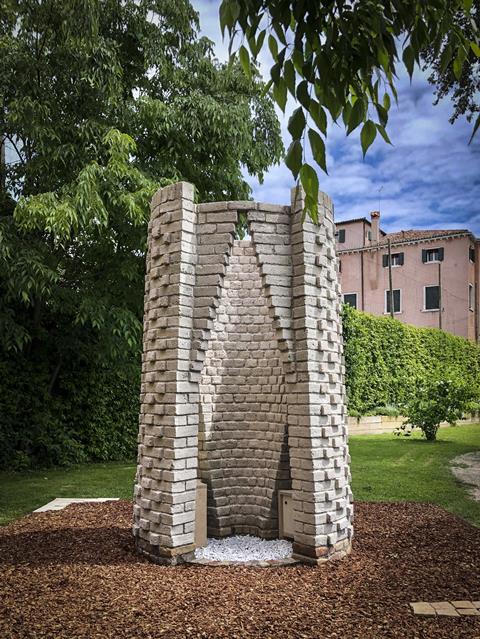
AKT II, Urban Radicals and Local Works Studio collaborated to create a unique temporary pavilion for the 2023 Venice Architecture Biennale. By using waste mud from Venice’s canals and other local recycled materials, the firms developed a novel brick with a third of the embodied carbon of a regular fired brick.
This innovative, sustainable approach showcases the team’s commitment to finding new ways to transform waste into high-quality, low carbon building components that reduce environmental impact.
Bespoke lifts at the Elizabeth Tower
Entered by Stannah Lifts major projects division
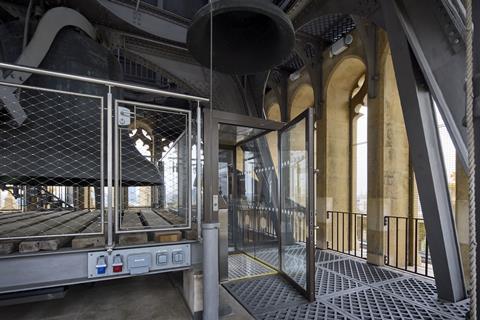
Stannah Lift Services showcased its expertise in delivering a complex and innovative lift solution for the Elizabeth Tower restoration project. Facing tight constraints, the firm designed and installed two lifts that seamlessly integrated with the tower’s historic fabric, providing essential access for maintenance and emergency services.
The specialist’s meticulous approach, energy-efficient technology and commitment to preserving the building’s aesthetic appeal highlight Stannah’s ability to tackle challenging projects while upholding the highest standards of quality and preservation.
Garden House
Entered by Greenaway Architecture
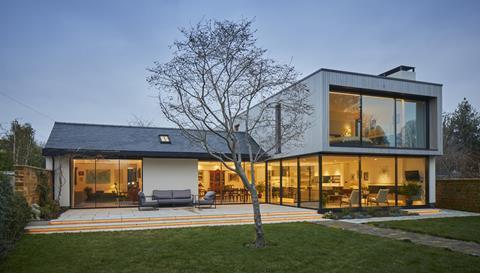
Greenaway Architecture’s Garden House project in Northamptonshire demonstrates the practice’s expertise in creating thoughtfully designed, sustainable homes that cater to its clients, with this project designed to meet the needs of a farmer with motor neurone disease, in a fully accessible family home.
Blending accessibility, aesthetics and environmental responsibility, the firm delivered a contemporary country house that seamlessly integrates with its rural conservation area setting. The project’s energy-efficient features, use of natural materials and flexible layout highlight Greenaway Architecture’s holistic approach to creating homes that prioritise the wellbeing.
Join us for the 30th edition of the ∫⁄∂¥…Á«¯ Awards
This year’s event will take place at the Grosvenor House Hotel on 5 November.
There are 21 categories to enter, so make sure you are in the room for construction’s night of nights and to celebrate excellence.
Tickets are selling fast, so .
Grime’s Graves visitor entrance
Entered by Ramboll
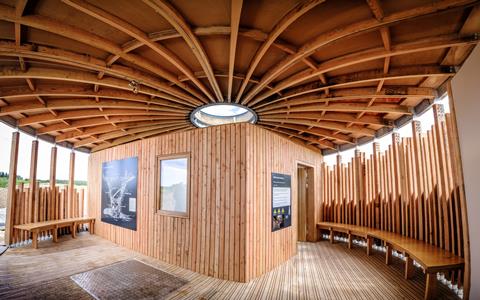
Ramboll, collaborating with MawsonKerr Architects, worked to create a striking new building that provides controlled public access to the neolithic flint mines at Grime’s Graves in Norfolk.
Designed with sustainability and durability in mind, the circular timber structure seamlessly integrates with the surrounding landscape while offering visitors a unique and immersive experience. The project’s innovative structural solutions and careful attention to minimising environmental impact highlight the team’s expertise in delivering sensitive interventions that preserve and enhance important historic sites.
Manor Lodge School early years extension
Entered by IID Architects
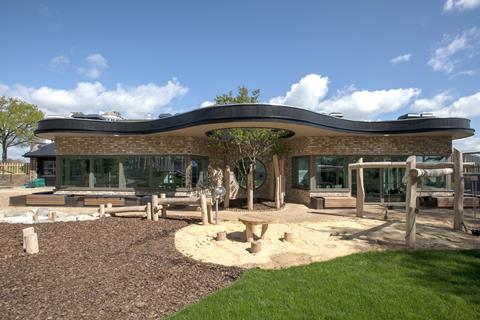
The Manor Lodge Early Years Centre, designed by IID Architects, is a single-storey, timber-framed extension that enhances the Hertfordshire school’s innovative outdoor learning philosophy.
The fluid building form and direct connection to nature create an inspiring environment for children, while the fabric-first approach to sustainability minimises the project’s embodied carbon. IID Architects’ ability to translate the client’s vision into a beautifully crafted, sustainable building has set a new standard for early years education facilities.
Pont House
Entered by Weave Architects
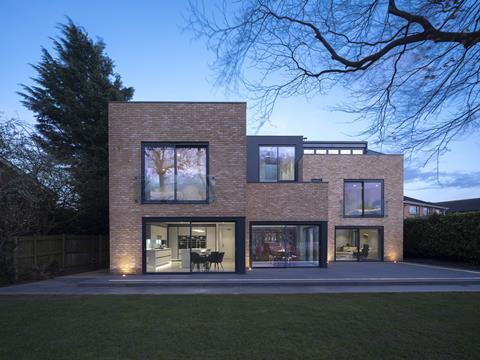
Pont House is an exceptional new-build dwelling in the prestigious Darras Hall Estate near Newcastle upon Tyne, designed by Weave Architects to provide an open-plan family home that harmoniously blends indoor and outdoor spaces.
The project’s innovative design and unwavering focus on sustainability, including solar photovoltaics, have enabled it to achieve an outstanding EPC rating of 99/A and an excellent environmental impact rating. Weave Architects’ thoughtful approach to integrating the home with its scenic rural setting has transformed the lives of the homeowners.
This year’s judges
- Yetunde Abdul, director of industry transformation, UKGBC;
- Bola Abisogun, founder, Digital Twin Skills Academy CIC;
- Brian Berry, chief executive, Federation of Master Builders;
- Rachel Bell, director of partnerships, Stride Treglown;
- Anna Clarke, director of policy and public afffairs, Housing Forum;
- Mark Cleverly, partner, CPC;
- Joanne De La Porte, senior sirector - project management, Gleeds;
- Katy Dowding, CEO and president, Skanska UK;
- Karen Gidwani, partner, Fenwick Elliott;
- Kay Hughes, design director, HS2;
- Ellie Jenkins, partner, Akerlof;
- Félicie Krikler, director, Assael;
- Doris Lam, development director, EcoWorld London;
- Liz Male, founder, LMC;
- John Marland, chief development officer, Bruntwood;
- Flan MacNamara, construction director, Sellar;
- Kamran Moazami, executive managing director, property & buildings, WSP;
- Robin Nicholson, fellow, Cullinan Studio;
- Iain Parker, director, T&T Alinea,
- Simon Rawlinson, head of strategic research and insight, Arcadis;
- Mark Robinson, chief executive, Scape Group;
- Veronica Senior, senior manager global captial projects, Lloyd’s;
- Scott Sanderson, partner, PRP;
- Neal Shasore, head of school | CEO, London School of Architecture;
- Trudi Sully, UK & Europe lead - industrialised design & construction, Mott MacDonald
- Lynne Sullivan, chair, National Retrofit Hub;
- Gauri Talathi-Lamb, chief executive, FHP ESS;
- Martha Tsigkari, senior partner and head of the applied R+D group, Fosters + Partners,
- Jo Wright, director, Perkins&Will
Queen Elizabeth II Rooms at Gordonstoun
Entered by Rivington Street Studio
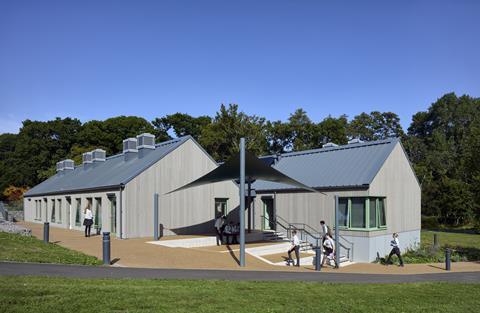
Rivington Street Studio’s design for the Queen Elizabeth II Rooms at Gordonstoun School showcases the practice’s ability to create state-of-the-art educational facilities that prioritise sustainability and adaptability.
The project’s lean construction, use of renewable materials and energy-efficient systems align with the school’s ambition to reduce its environmental impact, while the building’s flexible layout and strong connection to the surrounding landscape demonstrate Rivington Street Studio’s commitment to delivering high-quality, futureproof learning spaces that enhance the educational experience.
The Junction
Entered by Autor
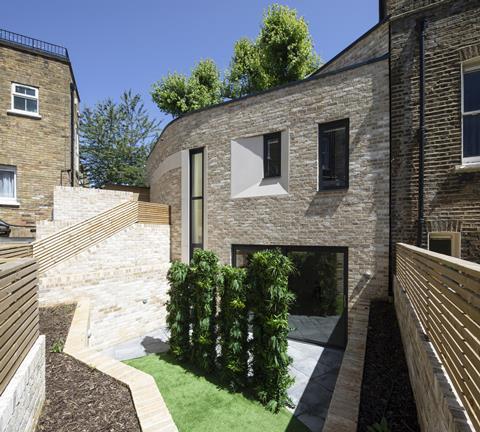
The Junction is a contemporary three-bedroom house designed by Autor on a challenging urban infill site in Islington, north London. The design’s intelligent use of the site’s geometry and careful management of privacy and overlooking buildings have transformed a derelict garage into a well-proportioned, light-filled home that achieves a 26% reduction in regulated carbon dioxide emissions.
Autor’s expertise in creating high-performance, contextually responsive architecture within tight urban constraints has enabled it to deliver an exceptional residential project that seamlessly integrates with the surrounding townscape.
Tun House
Entered by A’Bear & Ball Architects
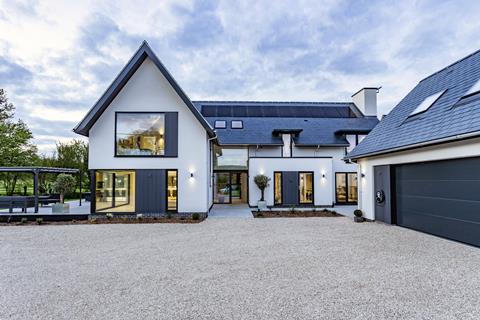
Tun House is a cutting-edge family home designed and built by award-winning architect A’Bear & Ball Architects. The project showcases the practice’s exceptional expertise in delivering distinctive, energy-efficient dwellings that seamlessly integrate with their rural settings.
Achieving Passivhaus Plus standards, the house features an 8.4kW solar array, battery storage, and an air-source heat pump system, resulting in near-zero energy costs for the homeowners. The design’s careful consideration of the local context and commitment to sustainability have set a new benchmark for contemporary architecture.
Woodwell and Meadow Barn
Entered by Distinctive Developments Group
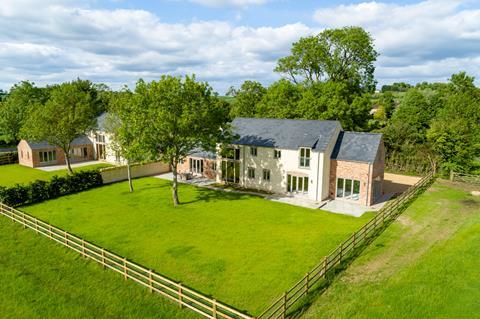
The Woodwell and Meadow Barn project in Market Overton by Distinctive Developments Group showcases the firm’s expertise in delivering high-quality, bespoke homes. By blending traditional materials and modern building techniques, it has created two exceptional rural dwellings that exceed market expectations.
The project was completed ahead of schedule and under budget, thanks to the team’s meticulous attention to detail, innovative technologies, and sustainable sourcing strategies. The design, featuring ground-to-eave glass openings, oak framing, and a harmonious courtyard layout, has achieved selling prices more than 25% higher than the initial valuation.



























No comments yet